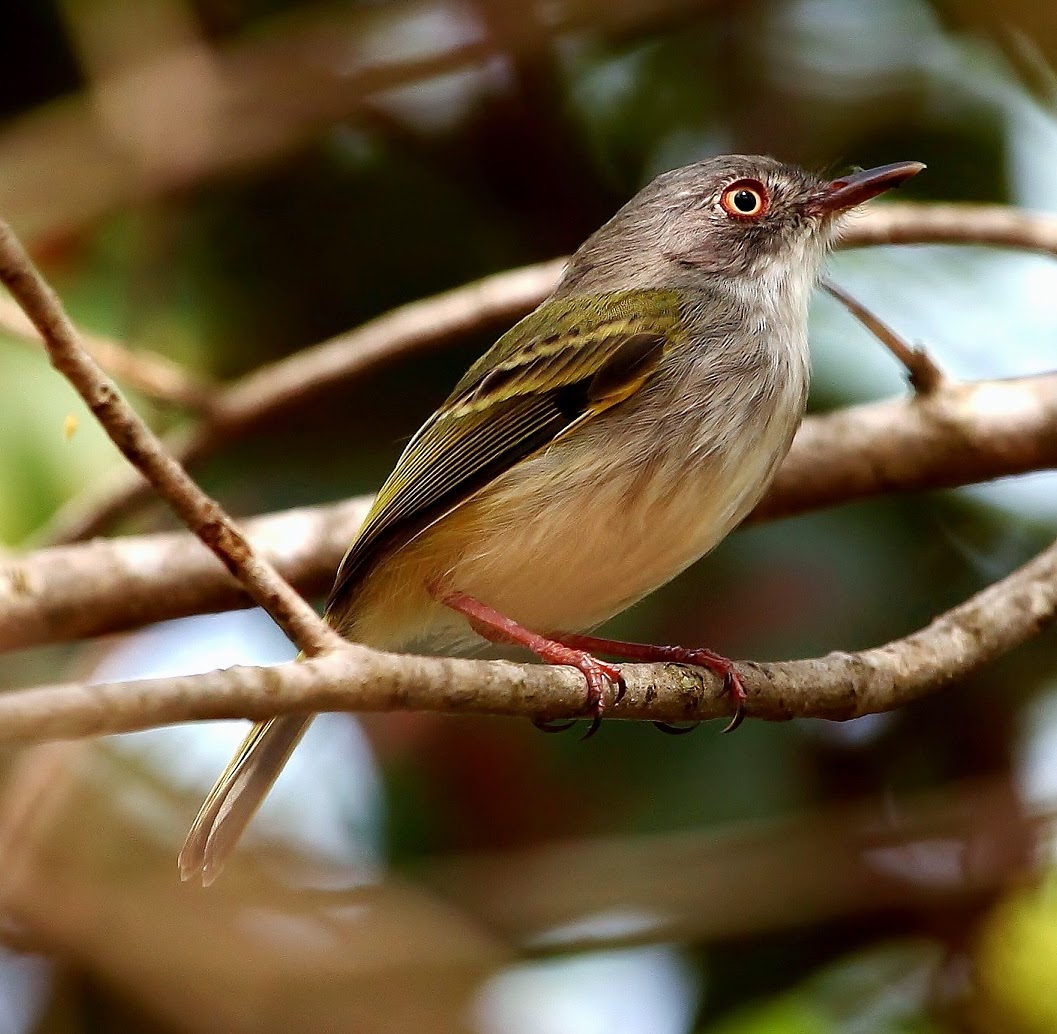 |
| Photo by Hector Bottai (Wikipedia) |
Common name:
pearly-vented tody-tyrant (en); sebinho-de-olho-dourado (pt); todirostre à ventre perle (fr); titirijí perlado (es); perlbauch-todityrann (de)
Taxonomy:
Order Passeriformes
Family Tyrannidae
Range:
This species is found in two disjunct areas of South America. They are found in western and northern Colombia and throughout northern Venezuela into western Guyana. Also from Bolivia and central and eastern Brazil south to Paraguay and northern Argentina.
Size:
These birds are 10-10,5 cm long and weigh 7-10 g.
Habitat:
The pearly-vented tody-tyrant is mostly found in dry scrublands and among the lower growth of dry deciduous woodlands, also using moist scrublands and pastures. They are present from sea level up to an altitude of 2.000 m.
Diet:
They forage alone or in pairs, among the lower levels of the vegetation, taking various insects.
Breeding:
These birds breed in January-June in the northern part of their range and in October-December in the southern part. The nest is built by both sexes, consisting of an elongated, domed purse with a side entrance, made of grasses, plant fibres and spider webs, and lined with plant down. It is placed hanging from a branch of a scrub, small tree or herb. The female lays 2-3 light-coloured eggs, which she incubates alone for 13-15 days. The chicks are fed by both parents and fledge 13-14 days after hatching.
Conservation:
IUCN status – LC (Least Concern)
This species has a very large breeding range and is described as fairly common throughout this range. The population is suspected to be stable in the absence of evidence for any declines or substantial threats.







